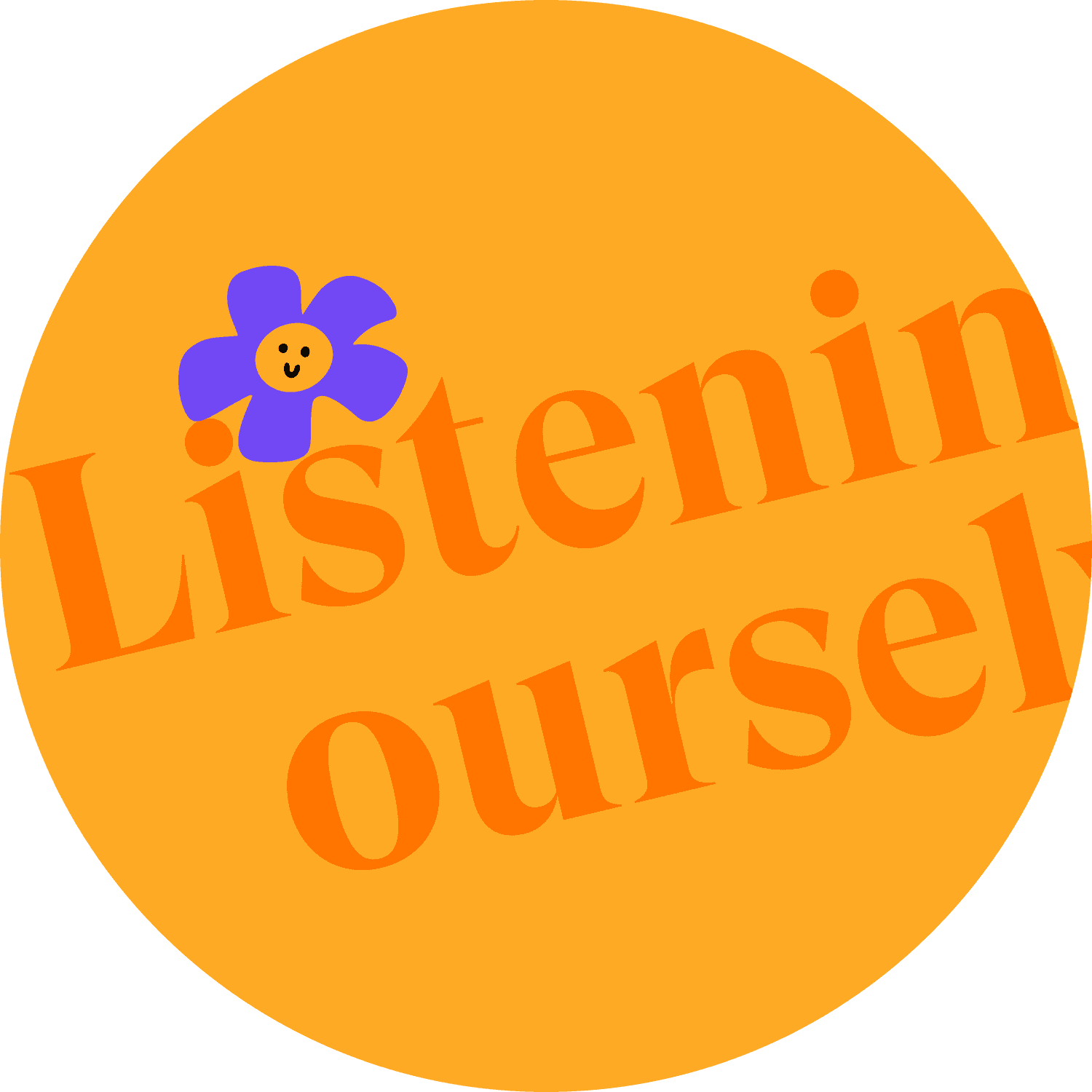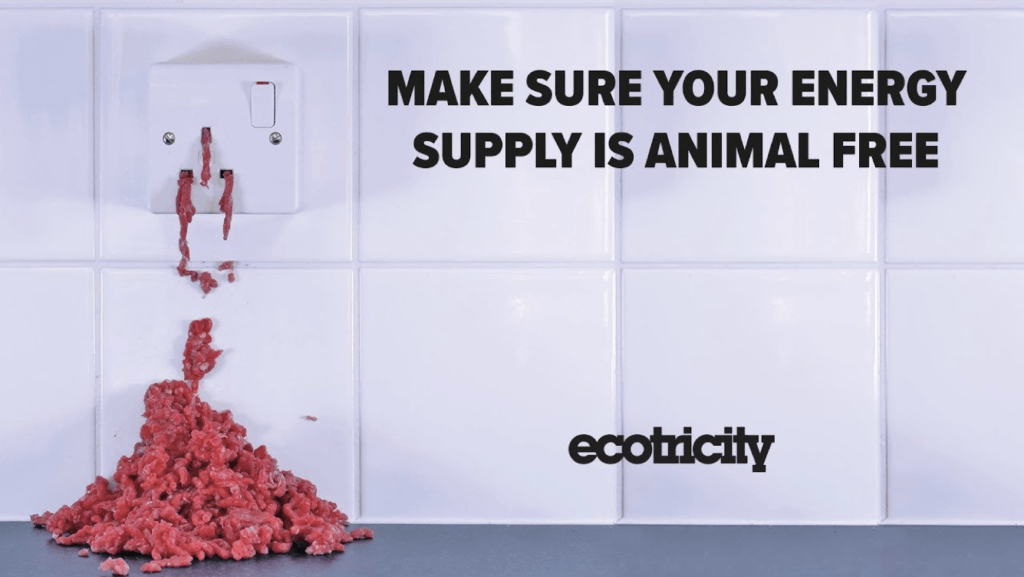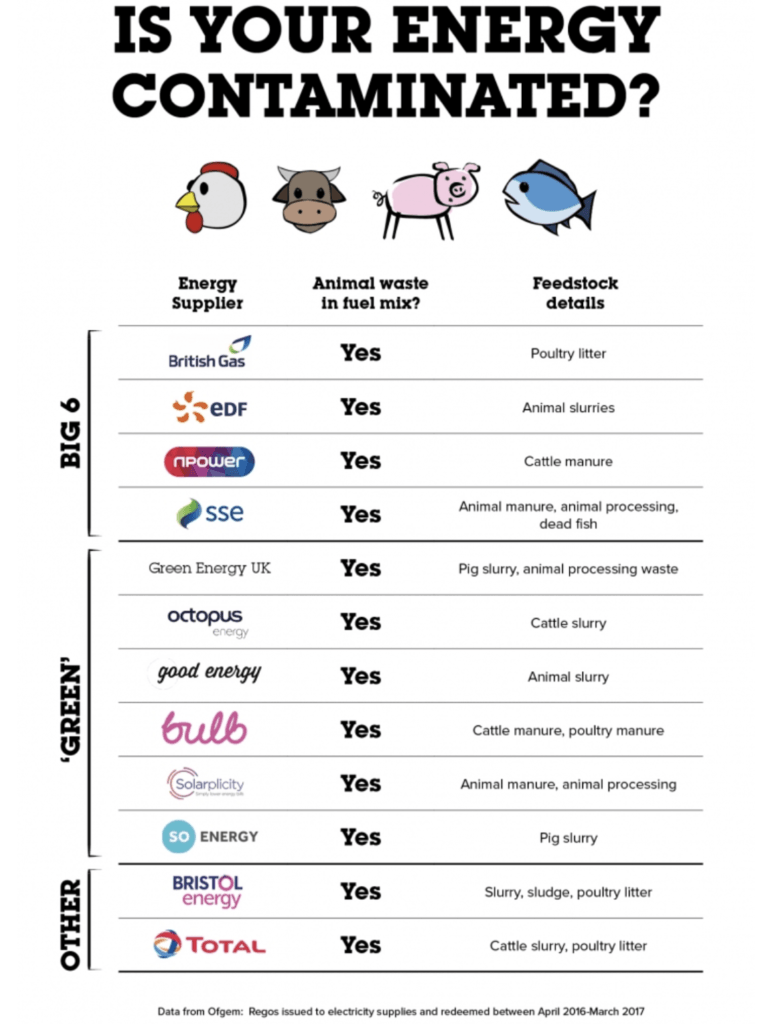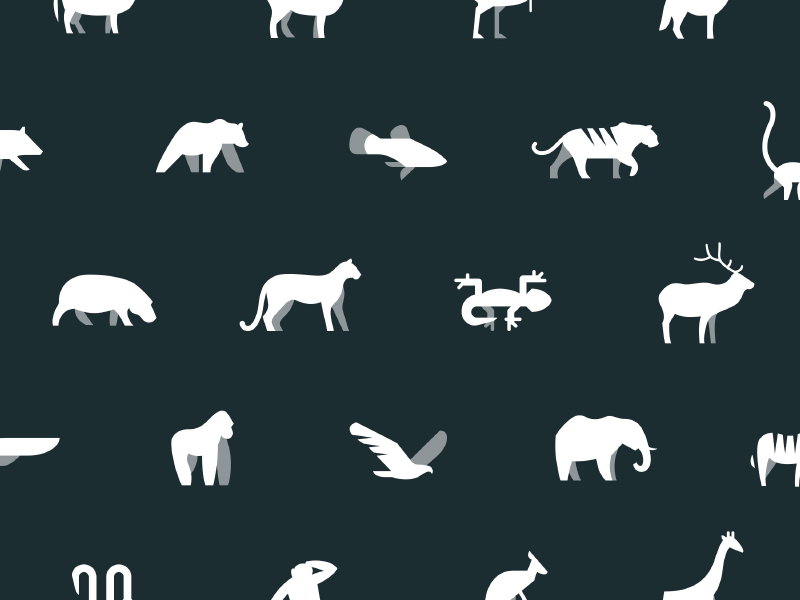
Are There Really Animal Products in Your Energy Supply?
I care deeply about sustainability and animal welfare – to me, it seems the two topics are inextricably linked. So it hit me hard when I saw an Ecotricity billboard last year that read: ‘Make sure your energy supply is animal free’, accompanied by an image of minced meat oozing from an electrical socket.

I’m a psychologist and researcher in the field of information visualisation, and it’s well known that shock and fear are strong triggers of persuasion. Ecotricity picked a powerful image for their campaign – the minced meat suggests a horror that’s likely to cause upset beyond the ranks of strict vegans.
In fact, it hadn’t occurred to me before that energy could not be animal free. I had to find out – was this image a fair representation of the reality?
Which animal products are used in our energy supply?
According to the information on Ecotricity’s site, SSE actually use dead fish to generate energy (which horrified me); whereas other providers’ non-vegan fuel mixes contain ‘poultry litter’, ‘slurry’, ‘manure’, ‘animal processing (waste)’, and ‘sludge’.

“Manure” is, er, a fairly straightforward concept, but what about the other terms?
- Apparently, poultry litter is a mix of chicken excreta, spilled feed, feathers, and material used as bedding. Essentially, everything you get if you sweep the floor in a barn full of chickens.
- I’m not 100% sure about animal processing waste. A quick online search brings up information related to the slaughter of livestock, so my best guess is that we’re talking remains of actual body parts. The Ecotricity website also mentions ‘slaughterhouse waste’.
- From what I gather, slurry is a mix of waste water and manure, and sludge is a mixture of liquid and solid components.
So is it fair to say there are animals in our energy supply?

Image Credits: Gardner Design
I hadn’t considered animal poop as a vegan issue before, but it is, indeed, an animal by-product – and one of the tenets of veganism is that anything we take from the meat industry only serves to perpetuate the industry. Like using the by-product of skin to make leather.
But there’s a sustainability angle we need to consider. Animal manure is used to fertilise fields – where it sets free greenhouse gases. But when the manure is collected and heated, and the released methane burnt to generate energy, the research (see here and here) suggests that this process releases fewer emissions into the atmosphere than spreading poop all over the place.
So thanks to Ecotricity’s campaign, I learned that energy supplies can contain animal parts (which is important to know for vegans and vegetarians) and animal excretions (which vegans may have to decide individually if they’re comfortable with). But I still can’t help but find the campaign unnerving.
Let’s take a closer look at the table above and look at the use of actual animal body parts. Out of 12 suppliers reviewed by Ecotricity, it’s only SSE that uses dead fish, and three suppliers (SSE, Green Energy UK, Solarplicity) use ‘animal processing (waste)’. So 9 out of 12 suppliers don’t use animal body parts.
So is the image of minced meat really a fair representation? I wouldn’t say so. In fact, I’d call it misleading, and I’m disappointed that Ecotricity has tried to shame other green energy providers in this way.
I still wish the company well, and I understand that they have to compete, but I’d like to see ethical companies playing fair – and remembering that the most important thing they can do in the 11.5 years we have to left to limit climate catastrophe is to work towards all green energy providers securing a bigger market share.
Featured image by Serj Marco
Earth.fm is a completely free streaming service of 1000+ nature sounds from around the world, offering natural soundscapes and guided meditations for people who wish to listen to nature, relax, and become more connected. Launched in 2022, Earth.fm is a non-profit and a 1% for the Planet Environmental Partner.
Check out our recordings of nature ambience from sound recordists and artists spanning the globe, our thematic playlists of immersive soundscapes and our Wind Is the Original Radio podcast.
You can join the Earth.fm family by signing up for our newsletter of weekly inspiration for your precious ears, or become a member to enjoy the extra Earth.fm features and goodies and support us on our mission.
Subscription fees contribute to growing our library of authentic nature sounds, research into topics like noise pollution and the connection between nature and mental wellbeing, as well as funding grants that support emerging nature sound recordists from underprivileged communities.
